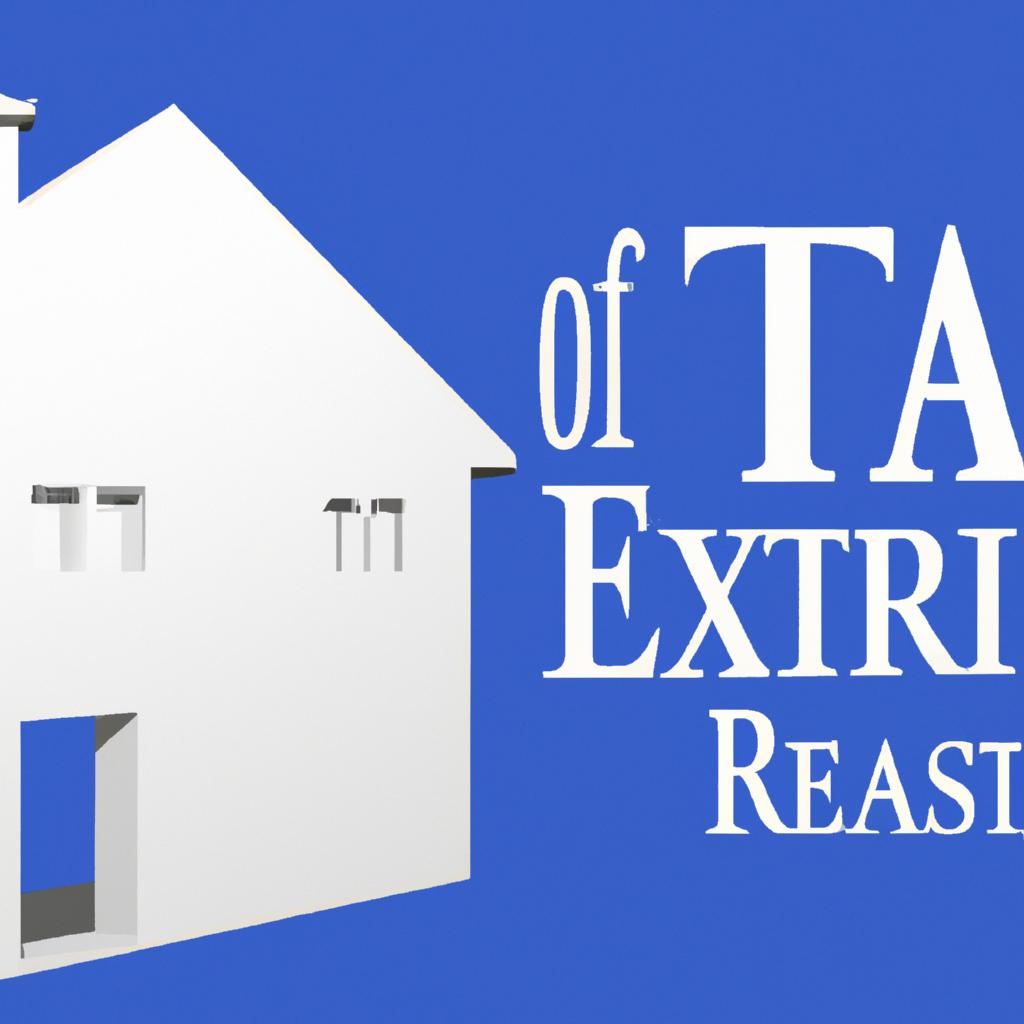Upon the unfortunate passing of an individual, the transfer of real estate becomes a crucial aspect of the estate planning process. As experienced lawyers in estate planning, probate, elder law, Wills, and trusts, Morgan Legal Group understands the complexities involved in navigating the transfer of real estate after death. In this article, we will delve into the intricacies of transferring real estate assets seamlessly and efficiently in accordance with the law.
Understanding the Legal Process of Real Estate Transfer After Death
When a loved one passes away, their real estate holdings may need to go through a legal process known as probate before they can be transferred to their heirs. This process can be complex and time-consuming, but it is essential to ensure that the deceased’s wishes are carried out properly. Here at Morgan Legal Group, we specialize in guiding our clients through the real estate transfer process after death, helping them navigate the legal hurdles and paperwork involved.
During the probate process, several key steps must be followed to transfer real estate to the rightful heirs. These steps include identifying and inventorying all real estate assets, paying off any outstanding debts or taxes on the property, and obtaining appraisals to determine the value of the estate. Our team at Morgan Legal Group is well-versed in these procedures and can provide expert guidance to ensure a smooth and successful real estate transfer after death.

Key Considerations When Planning for the Transfer of Real Estate in an Estate
When planning for the transfer of real estate in an estate, there are several key considerations that must be taken into account to ensure a smooth and efficient process. One of the most important factors to consider is the transfer of title of the property. This can be done through a variety of methods, including a deed transfer, a trust, or joint tenancy. It is essential to carefully review the options available and select the one that best suits the needs and goals of the estate.
Another crucial consideration when planning for the transfer of real estate in an estate is the tax implications of the transfer. Depending on the value of the property and the specific circumstances of the transfer, there may be estate taxes, gift taxes, or capital gains taxes to consider. It is important to work with a qualified estate planning attorney to navigate these complex tax laws and ensure that the transfer is done in a tax-efficient manner. By carefully considering these key factors, you can help ensure a successful and seamless transfer of real estate in an estate.

Strategies to Minimize Tax Implications in Real Estate Transfer After Death
When it comes to transferring real estate after the death of a loved one, it is crucial to consider strategies to minimize tax implications. One effective method is to establish a living trust, which allows for the seamless transfer of property without going through probate. By placing the property in a trust, you can avoid the lengthy and costly probate process, while also potentially reducing estate taxes.
Another strategy to minimize tax implications in real estate transfer after death is to take advantage of the stepped-up basis. When property is inherited, the basis is ”stepped up” to the fair market value at the time of the decedent’s death. This can result in significant tax savings when the property is eventually sold. Additionally, considering options such as gifting or setting up a family limited partnership can also help reduce tax liabilities in the transfer of real estate.

Recommendations for Ensuring a Smooth Transfer of Real Estate Assets in Estate Planning
When it comes to the transfer of real estate assets in estate planning, there are several recommendations to ensure a smooth process. One essential step is to clearly outline your wishes in a legally binding document such as a Will or a Trust. This will help avoid confusion and disputes among beneficiaries after your passing. Additionally, consider the following recommendations:
- Regularly review and update your estate plan: Life circumstances can change, so it’s essential to regularly review and update your estate plan to reflect any new assets, beneficiaries, or changes in laws.
- Work with an experienced estate planning attorney: Consulting with a skilled estate planning attorney can help you navigate the complex legal requirements and ensure that your real estate assets are transferred according to your wishes.
- Consider creating a revocable living trust: A revocable living trust can help avoid probate and provide more privacy in the transfer of real estate assets to your beneficiaries.
Q&A
Q: What happens to real estate after someone passes away?
A: When a property owner dies, their real estate typically goes through a legal process known as probate to establish who inherits the property.
Q: How does the transfer of real estate work in probate?
A: The probate court will determine if the deceased had a will designating heirs or beneficiaries. If there is no will, the court will distribute the real estate according to state laws of intestacy.
Q: Can real estate be transferred before someone’s death to avoid probate?
A: Yes, property owners can utilize tools such as living trusts or joint tenancy with rights of survivorship to transfer real estate outside of probate.
Q: What are some common challenges in transferring real estate after death?
A: Familial disputes over inheritance, unclear titles, and outstanding debts on the property can complicate the transfer process.
Q: Are there tax implications to consider when transferring real estate after death?
A: Yes, inheritors may be subject to estate taxes or capital gains taxes depending on the value of the property and their relationship to the deceased.
Q: What should property owners do to ensure a smooth transfer of real estate after their passing?
A: It is advisable to create a comprehensive estate plan, including a clearly written will or trust, and to communicate their wishes to their loved ones to avoid conflicts during the transfer process.
Final Thoughts
In conclusion, navigating the transfer of real estate after death can be a complex and emotional process. By taking the time to understand the various options available, seeking professional guidance, and open communication with loved ones, it is possible to ensure a smooth and efficient transition of property. Remember, every situation is unique, and there is no one-size-fits-all solution. Ultimately, the goal is to honor the wishes of the deceased and provide peace of mind for those left behind. Thank you for reading, and may your real estate transitions be as seamless as possible.
 When a loved one passes away, the last thing their family and friends want to think about is the transfer of their real estate. However, this is an important aspect that must be addressed in order to properly handle the deceased’s assets and ensure that their final wishes are carried out. In this article, we will explore the process of transferring real estate after death, the various methods of transfer, and the important legal considerations that must be taken into account.
When a loved one passes away, the last thing their family and friends want to think about is the transfer of their real estate. However, this is an important aspect that must be addressed in order to properly handle the deceased’s assets and ensure that their final wishes are carried out. In this article, we will explore the process of transferring real estate after death, the various methods of transfer, and the important legal considerations that must be taken into account.
What Happens to Real Estate After Death?
After a person passes away, their real estate becomes part of their estate. An estate is the sum of all the assets and liabilities a person has at the time of their death. Real estate is just one aspect of the estate, along with bank accounts, investments, personal belongings, and any other assets.
The real estate can be transferred in a few different ways, depending on how the deceased had prepared for their transfer before their passing. The most common methods of transfer are through a will, a trust, or through the laws of intestate succession.
Transfer through a Will
A will is a legal document in which a person specifies how their assets should be distributed after their death. Real estate can be transferred through a will if the deceased has specifically stated their wishes for each property.
In order for the transfer to take place, the will must go through the process of probate. This is a legal process in which the court verifies the authenticity of the will and ensures that the deceased’s wishes are carried out accordingly.
If the real estate has a mortgage or any liens, the executor of the will must ensure that they are paid off before the property can be transferred. The executor is responsible for managing the estate and carrying out the wishes stated in the will.
Transfer through a Trust
A trust is another legal document that allows a person to transfer their assets to a trustee, who will then hold and manage those assets for the benefit of the trust’s beneficiaries. Real estate can be transferred through a trust if the deceased had created a trust before their passing.
In this case, the property does not go through the probate process, as it is not part of the deceased’s estate. Instead, the trustee is responsible for transferring the property to the beneficiaries according to the instructions outlined in the trust document.
Transfer through Intestate Succession
If a person passes away without a will or a trust, their real estate and other assets are distributed according to the laws of intestate succession. These laws vary depending on the state, but generally, the deceased’s assets are transferred to their closest living relatives.
The transfer of real estate in this case can be more complicated and can lead to disputes among family members if there is no clear indication of the deceased’s wishes. It is always recommended to have a will or a trust in place to avoid any potential conflicts and ensure a smooth transfer of assets after death.
Important Legal Considerations
Regardless of the method of transfer, there are some important legal considerations to keep in mind when it comes to transferring real estate after death. These include:
– Estate Taxes: If the value of the estate, including the real estate, exceeds a certain threshold, estate taxes may be applied. It is important to consult with a tax professional to understand the potential tax implications and plan accordingly.
– Title Transfer: In order to transfer real estate after death, the title must be changed to reflect the new owner. This can be done through a deed transfer or transfer through a trust.
– Capital Gains Tax: When a property is inherited, the cost basis for tax purposes is “stepped-up” to the fair market value at the time of the previous owner’s death. This means that if the property is later sold, the capital gains tax will be based on the new value and not the original purchase price.
– Debts and Liabilities: Real estate is not just an asset, it also comes with any debts or liabilities attached to it. These must be taken into consideration when transferring the property after death.
Benefits and Practical Tips
Transferring real estate after death can be a complex and emotional process, but having a plan in place can ease the burden on your loved ones. Here are some practical tips to consider when it comes to transferring real estate after death:
– Keep your will or trust up to date: Make sure to regularly review and update your will or trust to reflect any changes in your assets or wishes.
– Consider creating a trust: A trust can help avoid the probate process and provide more control over how your assets are distributed.
– Communicate with your family: Make sure your loved ones are aware of your wishes for your real estate and keep them updated if any changes are made.
– Consult with professionals: Seek advice from a lawyer, tax professional, and financial planner to ensure that your estate plan is in line with your goals and that your real estate is transferred in the most efficient way possible.
First-hand Experience
Many individuals who have gone through the process of transferring real estate after a loved one’s death have expressed the importance of having a will or trust in place. “My mother did not have a will, and her real estate had to go through the laws of intestate succession. This caused a lot of confusion and disagreements among my siblings, and it was a stressful and time-consuming process,” shares Jane, a real estate owner in California. “After that experience, I made sure to create a will and communicate my wishes to my family so they would not have to go through the same struggle.”
In Conclusion
Transferring real estate after death is an important and inevitable aspect of estate planning. It is crucial to have a will or a trust in place to ensure that your wishes for your real estate are carried out and to minimize potential conflicts among your loved ones. By keeping in mind the legal considerations and following practical tips, you can ensure a smooth transfer of assets and provide peace of mind for your family during an already difficult time.






